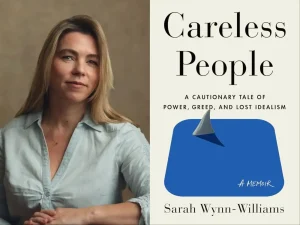This is the 13th in a series of opinion columns on Ontario’s 2022 municipal elections, written by Josh Lieblein for The CJN.
Step right up for the ever-popular debate edition of Doorstep Postings, for which your correspondent headed back to the eternally familiar turf of Thornhill to catch up with two familiar faces: longtime Vaughan city councillor Alan Shefman, and former local Ontario PC MPP Gila Martow.
These two political veterans have faced off once before, when the career optometrist failed at her first electoral effort—before winning a higher-profile job at Queen’s Park four years later. (After two terms, she decided to leave provincial politics.)
Well, the incumbent won that 2010 contest by 1,282 votes—but there were four other candidates in that race who collectively earned 3,084. This time around, it’s just Martow and Shefman on the ballot.
And with five days to go before E-day, they met at Beth Avraham Yoseph of Toronto (BAYT) synagogue for a one-on-one debate.
The man who’s represented Ward 5 for the past 18 years has been mostly sidelined from canvassing with a foot injury. Still, he remains positive.
“We’ve handed out more literature this time around than the last five campaigns. I’m very fortunate to have a great group of canvassers that are doing the legwork, and they tell me all about the positive response at the doors. That responsiveness to the needs of the community is the thing I’m most proud of as a councillor.”
Martow agrees that things are a lot more pleasant and less partisan this time around. “I can remember when signs disappearing at night was a common occurrence,” she says. “My team is very experienced and they are expected to behave with decorum.”
Like the campaign, the debate was civil and non-partisan—but there was significant disagreement between the two candidates on policy issues.
The main point of departure was the timeframe and cost for the renovation of the Garnet Williams Community Centre: Shefman insists the project is on time and on budget. Martow contends that the project’s expenses are so significant that they have to be spread out among multiple budgets.
The other major disagreement is over transit, with Shefman feeling optimistic about expanding the Highway 7 Rapidway to include light rail transit within the next 20 years, and Martow cautioning that the project will cost $100 million to build 4 km of track, which will create headaches for local businesses—because the dedicated left turn lanes will make it harder for motorists to enter their parking lots.
After the debate, the two candidates took time to reflect on their respective performances.
“There were a number of inaccuracies that I had to respond to from my opponent,” Councillor Shefman said. “She was trying to raise the issue of subsidizing trucks on the 407, which we have never done. She also claimed that we had fewer community centres in Vaughan compared to other wards. In reality we have 3 centres while other wards have no more than 3 and sometimes only 2. I’ve been doing this for a long time, and you need to know how a municipality works to do the job.”
For her part, Martow claimed an advantage over Shefman when it came to fighting antisemitism. “Councillor Shefman spoke about his time at B’nai Brith 20 years ago,” she pointed out. “At the moment, I’m part of a working group against Jew-hatred with (Toronto city councillor) James Pasternak, and I’ve put forward anti-BDS motions and supported the IHRA definition of antisemitism being adopted in York Region.”
“I was on the scene during the antisemitic protests at Chabad Gate shopping centre, and I would have like to see Councillor Shefman there, too. He also missed a rally against the new subway being built under people’s homes.
“On top of that, he didn’t think anything could be done about leaf blower noise and diesel fumes, which has been a problem for several residents of the ward. I’ve spoken to colleagues in Montreal who have changed the rules so they only use electric leaf blowers, and limit the use of these tools to specific months of the year.”
When asked for a signature policy they would put into action, each of the candidates had their own idea. Shefman said he would work with his colleagues in other municipalities to call for a provincial inquiry into Ontario’s planning regime for housing. Martow wanted to take a look at the voters list and remove those who hadn’t voted in the last three elections. (In her view, this would have the effect of increasing the percentage of actual residents who voted.)
It’s clear that regardless of who wins, Thornhill will have a municipal representative who’s passionate about public service and has demonstrated their love for the community for years—and voters will have a clear choice between two very different visions.
Josh Lieblein can be reached at [email protected] for your response to Doorstep Postings.







